The second edition of Rome Art in the Cloud. Impressions and 10 best booths
The second edition of Roma Arte in Nuvola, Rome ’s modern and contemporary art fair now in its second year, has just concluded: this year, the young Roman kermesse was held from November 17 to 20, inside Fuksas’ Nuvola at Eur, distinguishing itself for its orderly layouts that saw on the first floor the modern and twentieth-century art galleries and on the upper floor those of contemporary art, with the Auditorium inside the Nuvola hosting meetings, debates, and award ceremonies. A fair, the one in Rome, which benefited from the general direction of Alessandro Nicosia and the curatorship of Adriana Polveroni, and which aspires to be the privileged point of reference for collectors and art lovers in the center-south. An ambitious goal and a fair that, with a proposal in any case better than that of the first edition, has on its side several lights but also several shadows.
Lights: the venue, first of all. Well connected to the historical center of the capital, airy and suitable for an art fair because of its wide spaces that ensure an orderly division of the galleries, La Nuvola Congress Center perhaps has few other peers in Italy for the organization of events of this kind and nothing to envy compared to Turin’s Oval, Fieramilanocity or Bologna’s Fiera, the venues of the three main Italian art fairs that stand on modern and contemporary (Artissima, Miart and Arte Fiera). Another virtue: transparency. At few other similar events do you see as many prices displayed as at Rome Arte in Nuvola, evidently the fair aims to broaden the audience of art buyers in the target area. Third virtue: the presence of top players, leading galleries on the national scene that bring the fair to an overall medium-high quality.
Shadows: first, the selection, with some galleries unfortunately not always up to the mark, and sometimes placed in front of or next to players who instead bring quality proposals to Rome (the ordering of the galleries therefore should be revised). Second shadow: the quality of the installations and performances. Being greeted by the inscription “Rome” made of bronze bodies by Lorenzo Quinn is not exactly the best welcome if one wants to convey the image of a high-level fair. Many other installations are unconvincing, starting with Giovanni Termini’s curious collapsed booth. And the same could be said of the performances: removed Limit by Loredana Longo, the rest is warmed-over soup (either because uninteresting works or because they are not new), and even one of the performances, Romina De Novellis’s The Sheep , is about ten years old. Third, the terms of self-representation. It is difficult to present oneself as a fair that “gathers the most important and renowned Italian and international galleries,” or as a platform that puts Rome “on the international scene” if the only proposal outside the patriotic borders is the presence of only five foreign galleries (Italians with venues around the world do not count) out of almost 150, and one guest country (Ukraine). There would be nothing wrong with presenting itself as a national fair open to international attendance (a formula that would perhaps be more appropriate). Finally, the website: we hope that from the next editions there will be more than just a list of participating galleries, but the possibility to browse through a catalog as is the case with other fairs.
The lights then include galleries that have distinguished themselves with some proposals worthy of attention for the originality of the booth set-up, as well as for the work and research of the artists. We have selected below the best ten according to the editors. Here they are below.
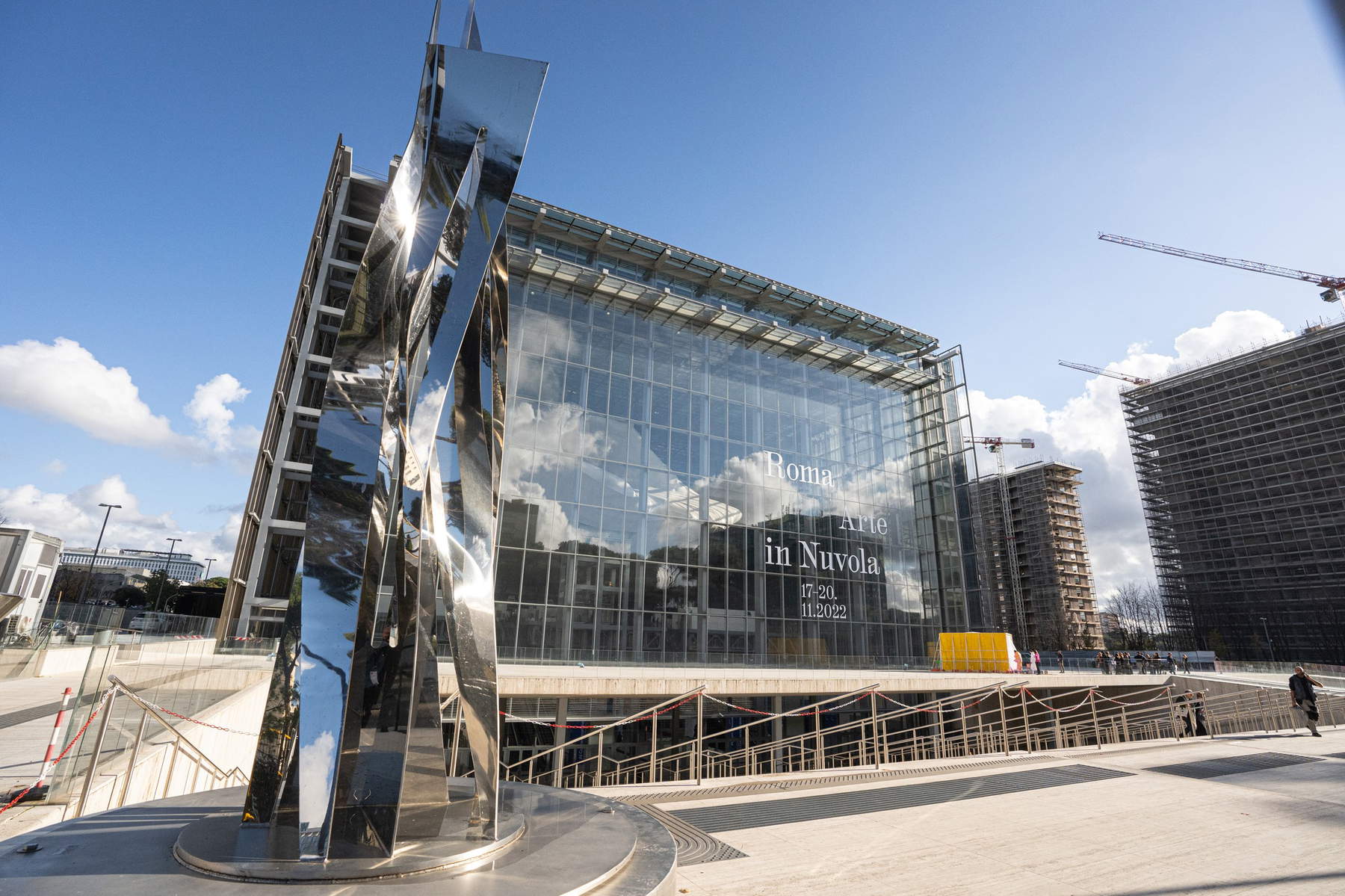
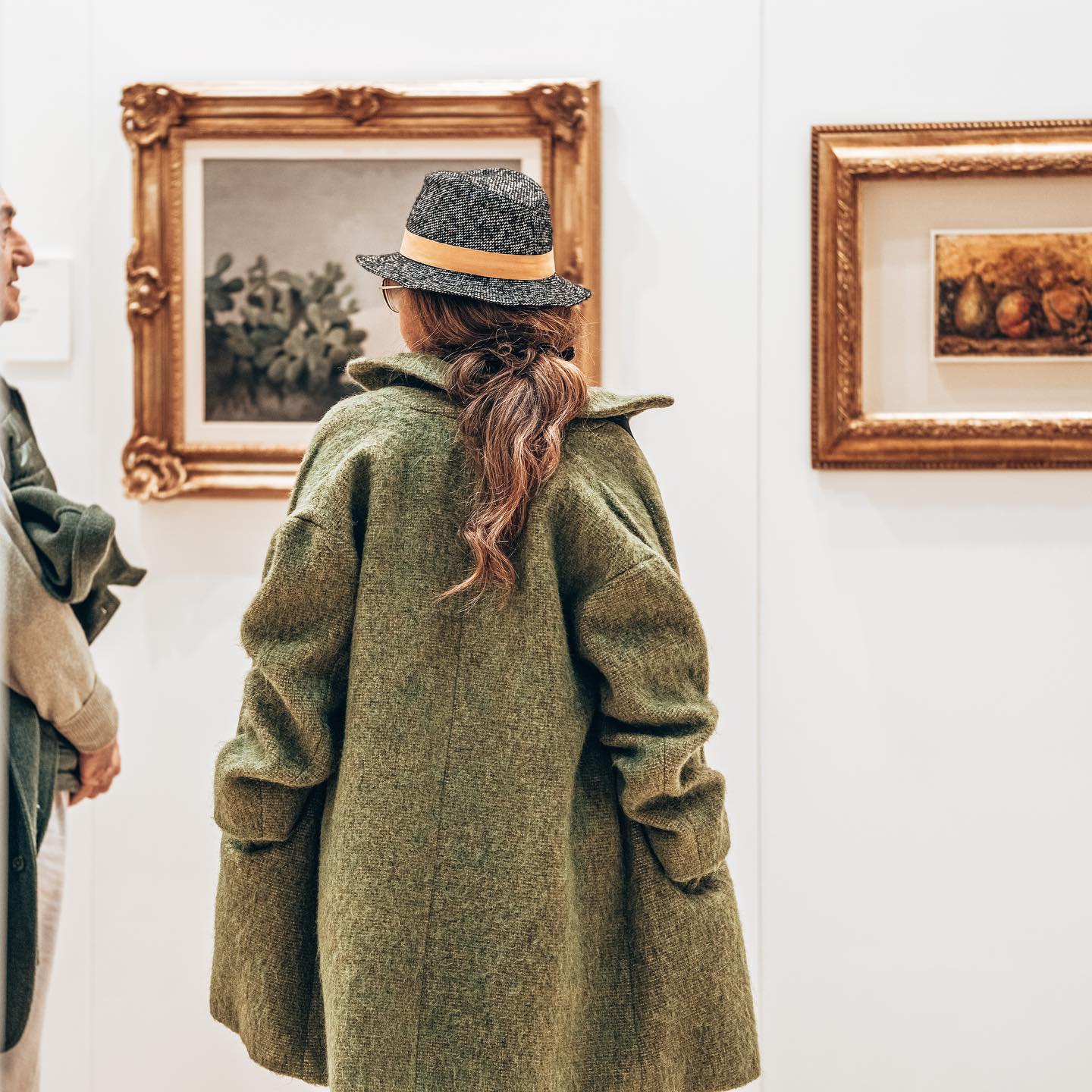 Rome Art In Cloud
Rome Art In Cloud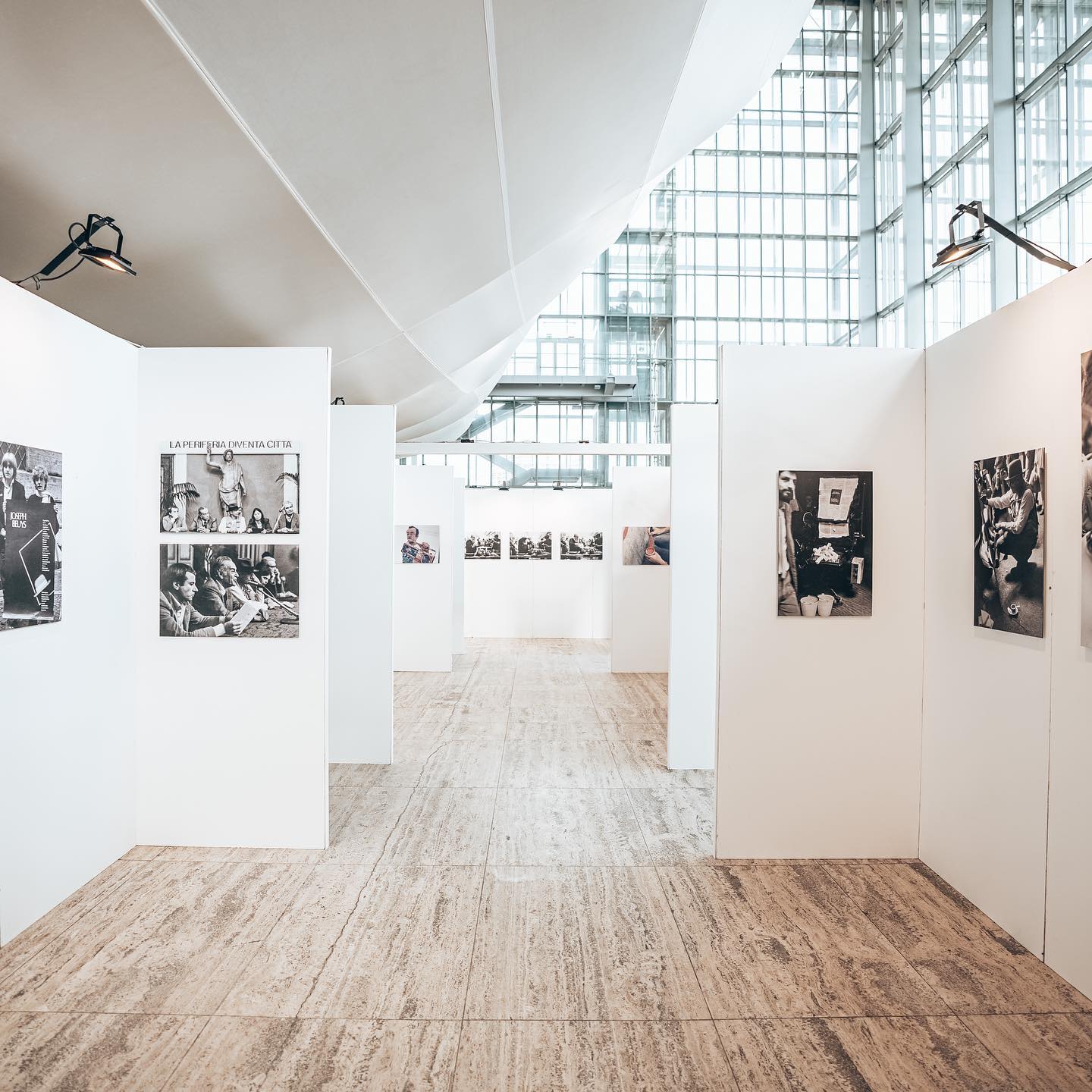 Rome Art In Cloud
Rome Art In Cloud1. Niccoli Gallery
The Emilia-based gallery, with a design of strong essentiality, created a minimal and very clean but welcoming and chromatically inviting booth, where a sequence of works from the Boyfriend series by American artist Jessica Wilson unfolded on the wisteria-colored walls with an effect suspended between symbolic and playful.
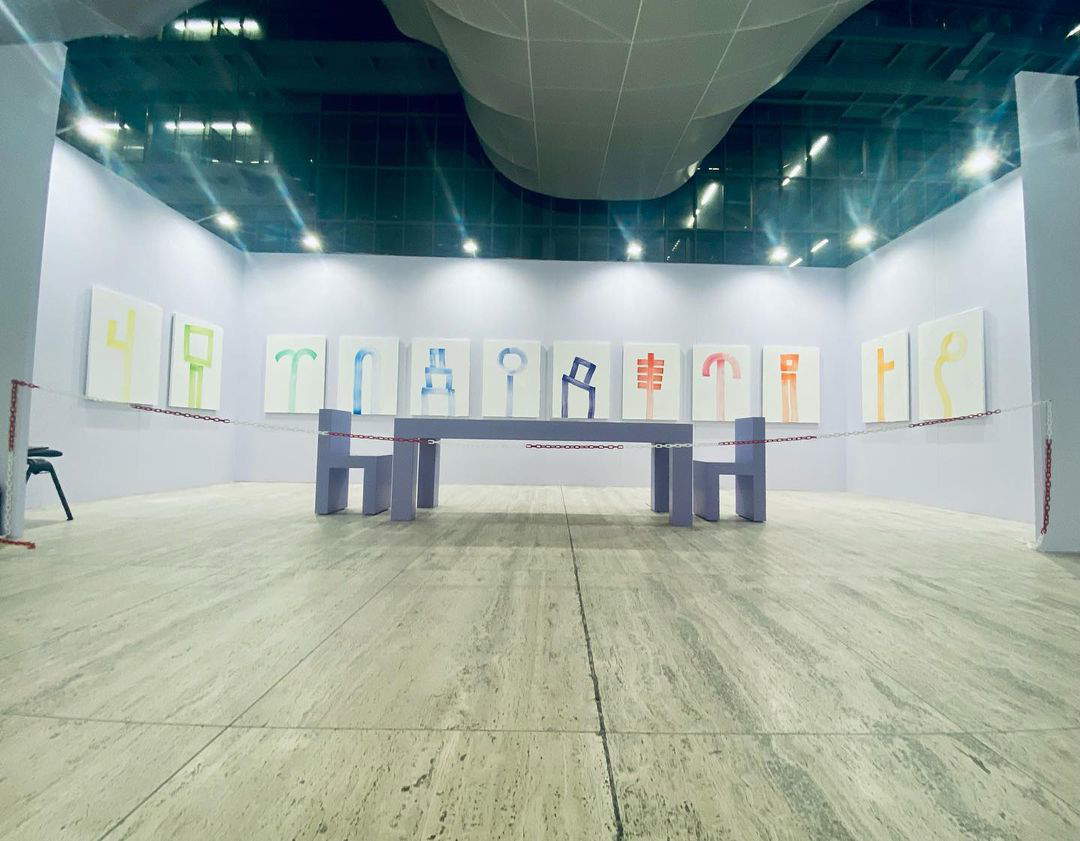
2. Mancaspazio
The Nuoro gallery ’s booth was among the most interesting installations, with a small room completely painted black inside which a fantasy, noir and soft-porn-tinged Wunderkammer of photographs, sculptures and very small and medium-sized installations made by 40 Sardinian artists and illustrators unfolded.
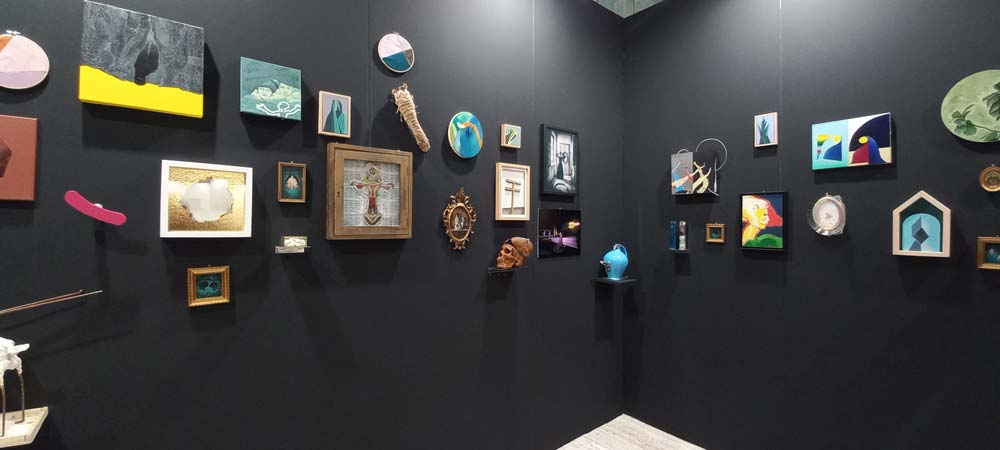
3. Varsi Art & Lab
Speaking of “young” art, one cannot fail to mention the Roman gallery Varsi, which in the field of urban and street art (where the overall quality is not always excellent, on the contrary) represented one of the most stimulating realities at Rome Arte In Nuvola: their space at the fair featured works by Amok Island, Nelio Sonego, Matth Velvet and Gonzalo Borondo, who also make up a small part of Varsi’s diverse stable.
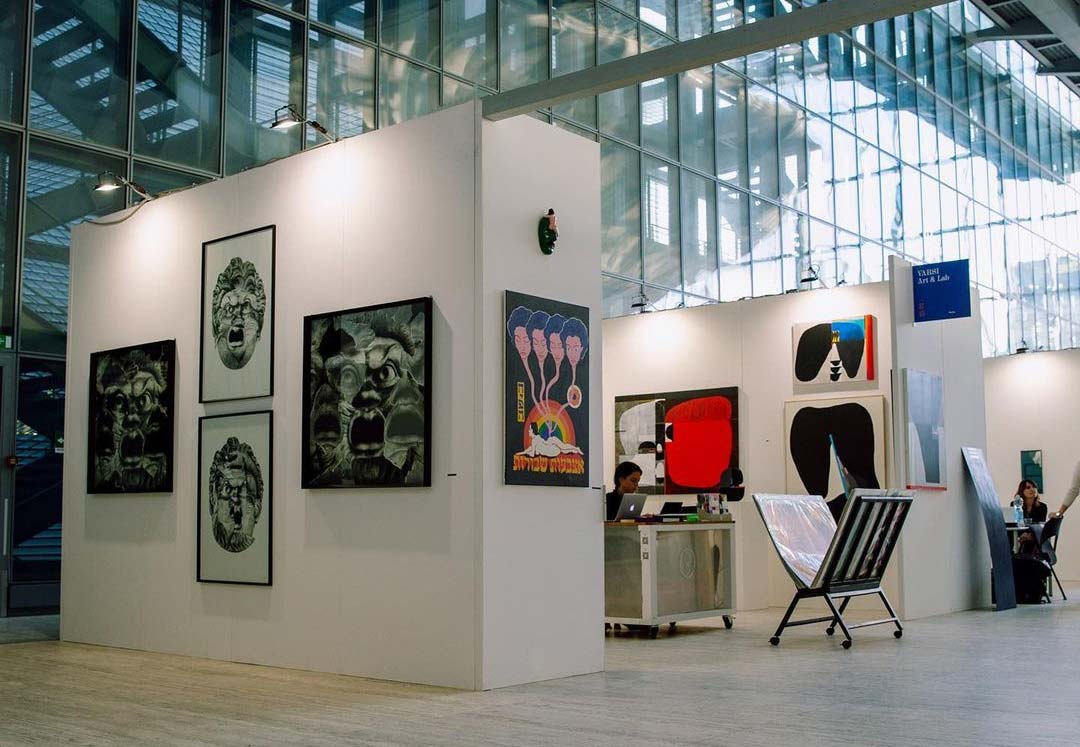
4. Aa29 Project Room
Thinking about the artists proposed at the fair, it was striking to see Isabella Pers’s solo exhibition at Aa29 Project Room, fully referable to the artist’s research on themes such as the observation and study of natural, cultural and social ecosystems investigated through the use of natural materials such as wood and paper.
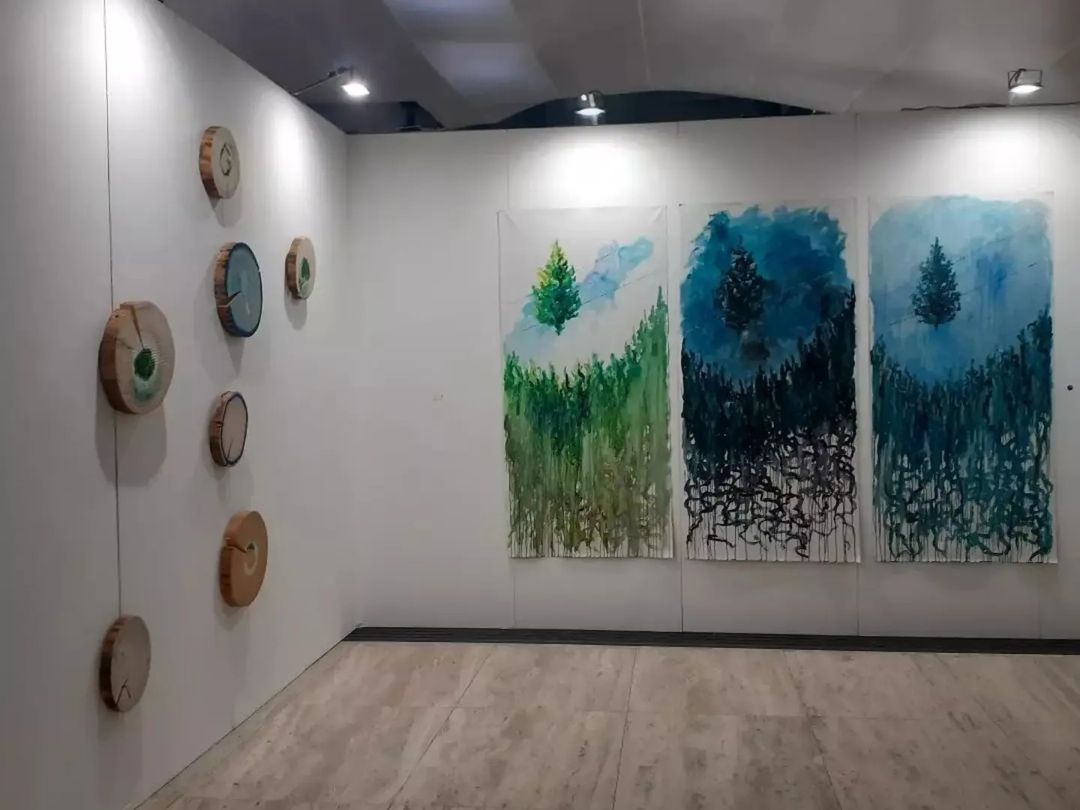
5. C+N Gallery - Canepaneri
In the area of international young painting to keep an eye on Filipina MJ Torrecampo, in the Canepaneri booth. Born in Manila in 1992, she offers human figures engaged in daily activities, enveloped in a suspended atmosphere, with fresh, expressive painting, with often bold constructions, and characterized by apparent calm, silences, a wide variety of shots that speak to the viewer of contemporary life in mass society.
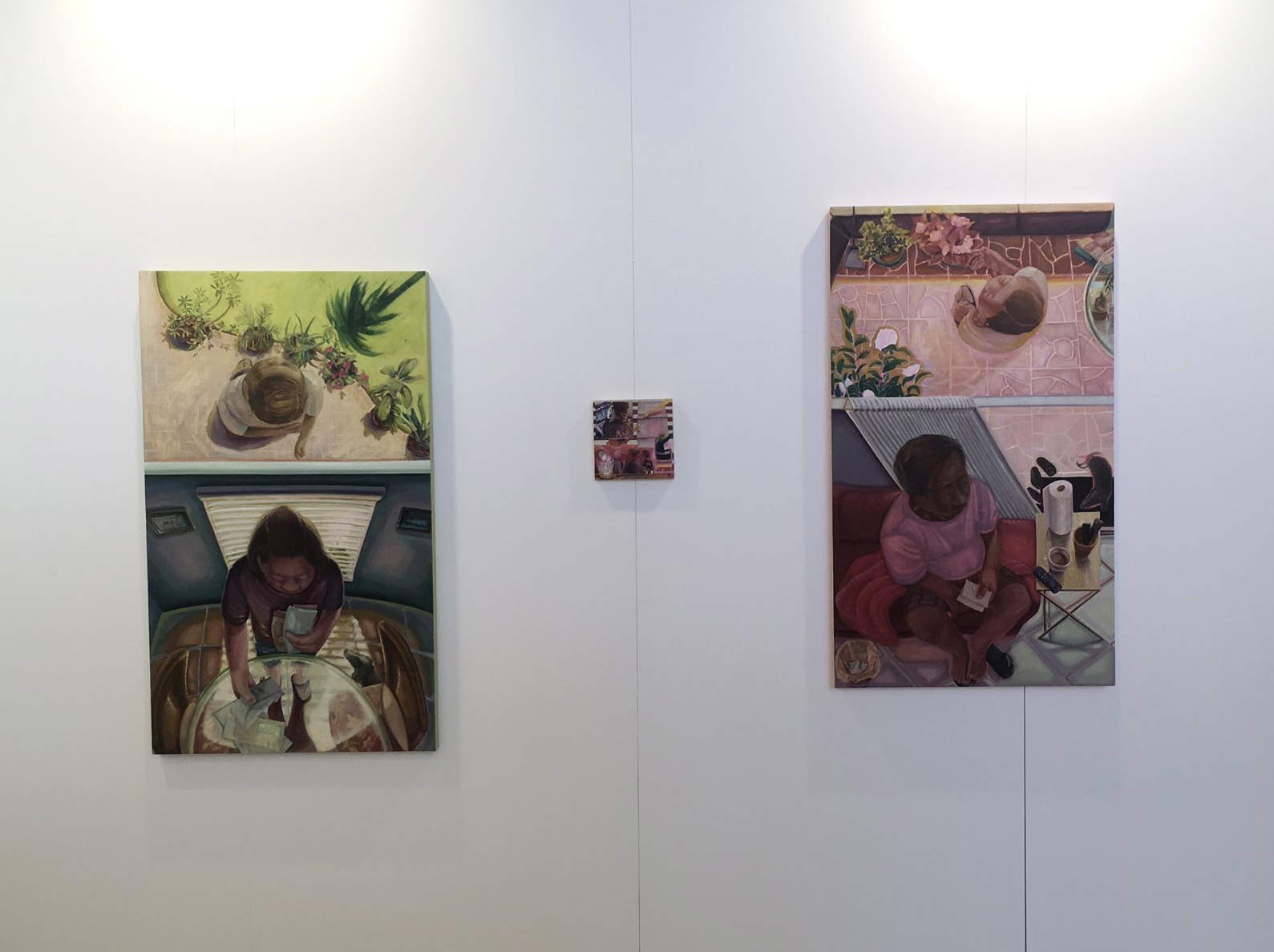
6. Giampaolo Abbondio Gallery
Among the young (or at least if you can call an artist born in 1976: however, his proposal is among the newcomers) also worth mentioning is the Argentine Pablo Candiloro proposed by Giampaolo Abbondio’s Umbrian-Milanese gallery. Born in Buenos Aires, Candiloro has been living between Tuscany and Milan for 20 years, and his painting is the result of the suggestions he draws from his lands. Since the pandemic, his painting has become more material.
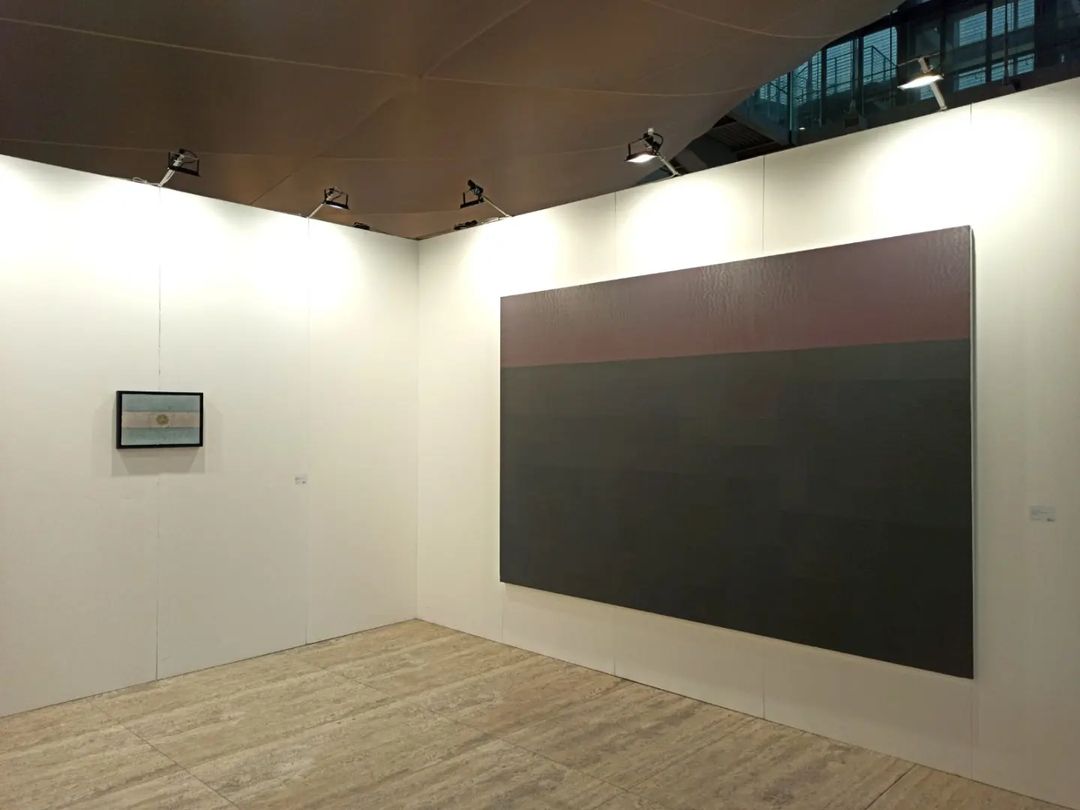
7. Idris Space
Idris Space, among the few international presences at Rome Arte in Nuvola, is a cultural initiative, so it calls itself, based in Tel Aviv and yet pursuing a project on Italian and European territory as well; in Rome they participated with an intriguing selection that ranged from the intensely social painting of Mai Daas to the negative flowers of Dor Guez, from the feminist hyperrealism of Samah Shihadi to the charcoals of Tigist Yoseph Ron.
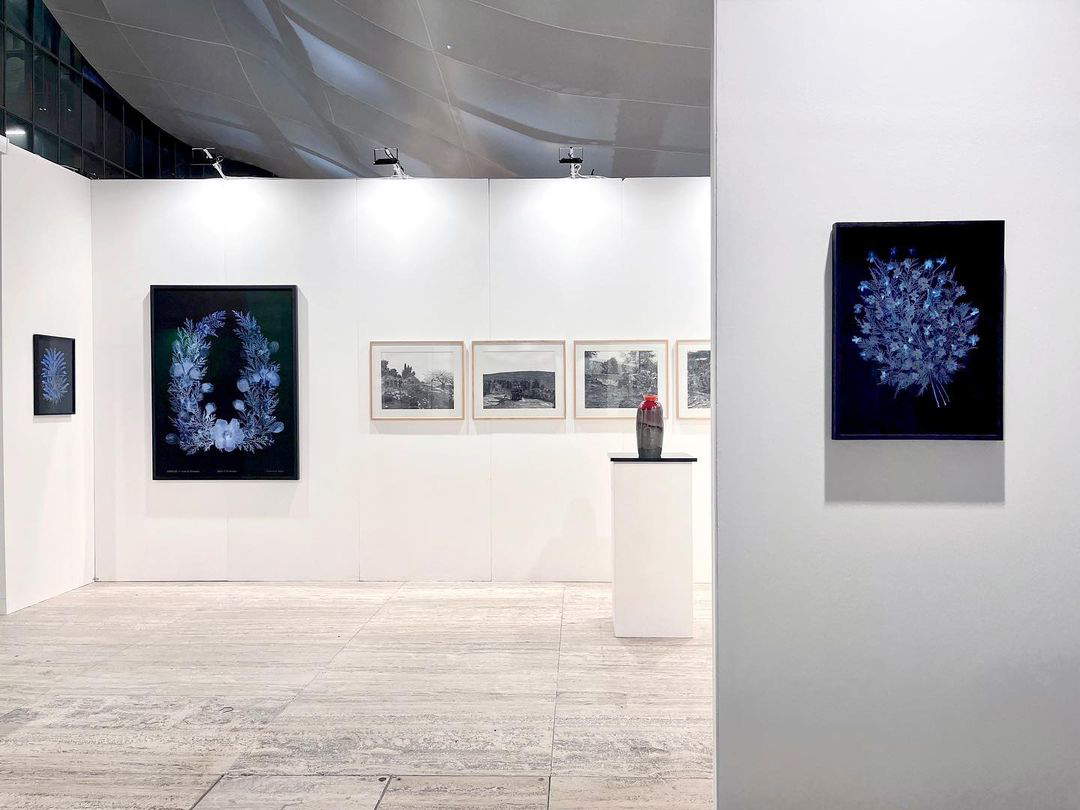
8. Tornabuoni Arte
In the elegant (albeit with a few too many sags here and there) and all in all well-calibrated pavilion of modern art galleries, the stand of Tornabuoni Arte, one of the fair’s most resounding names, stands out. Under the title Piero Dorazio e il suo tempo ( Piero Dorazio and His Time), it brings together some magnificent specimens where overlapping and intertwining lines and colors, geometric figures and sinuous motifs did full justice to the Roman master’s abstractionism.
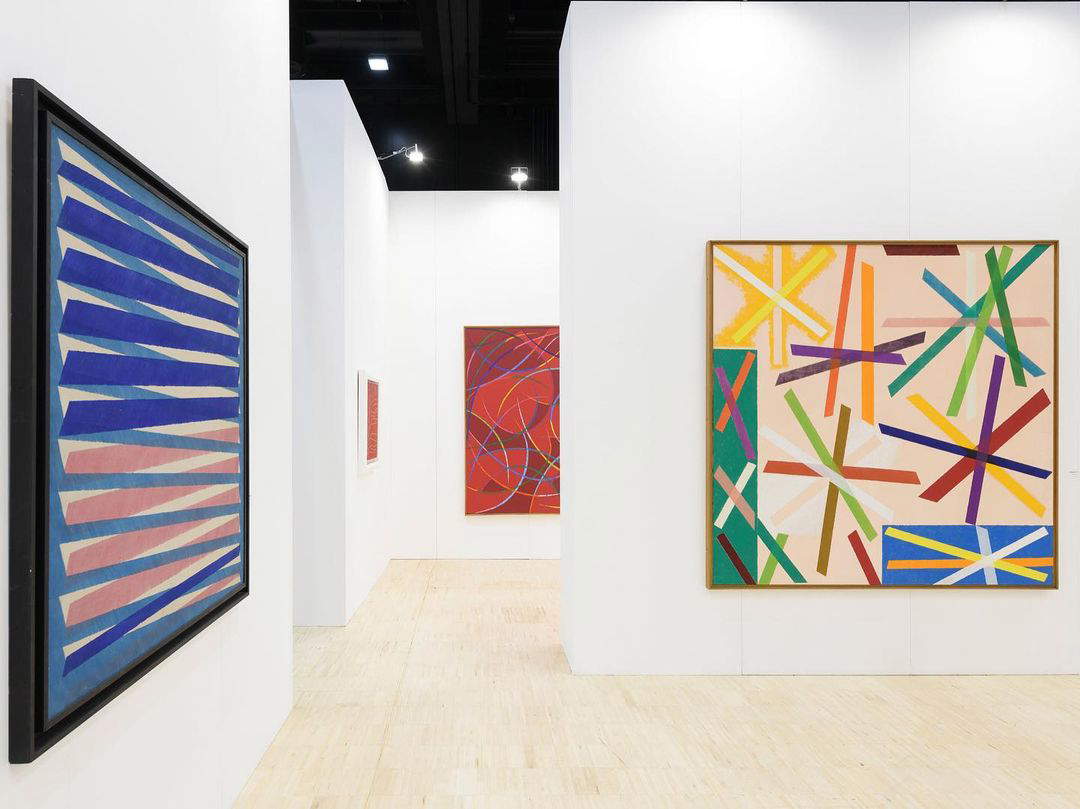
9. Ed Gallery
In the Piacenza gallery, the space was totally polarized by the project tot capita, tot sententiae, a series of heads with classical male, female and mythological figure traits made by various artists; the entire booth was in fact a tribute to the Roman and mythological world, celebrated through the medium of painting and that of ceramics.
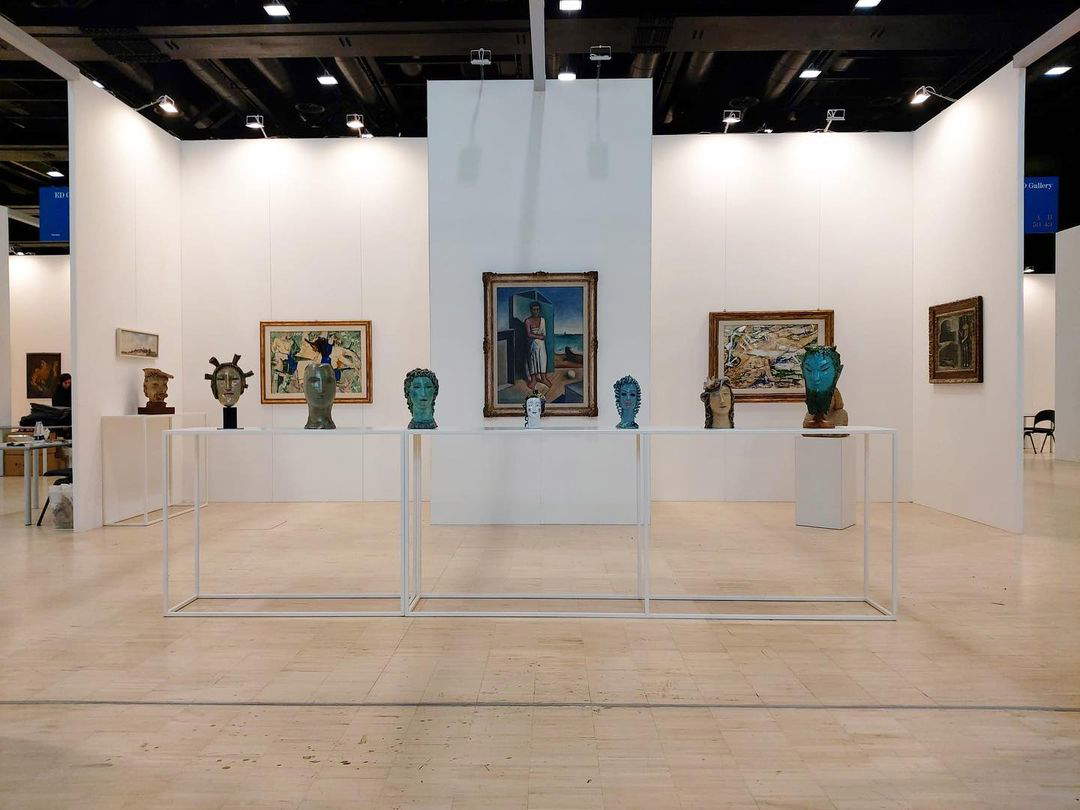
10. Ronchini
Remarkable and courageous finally was the choice of Ronchini, a gallery founded by Lorenzo Ronchini in Italy in 1992 but since 2012 relocated to London and therefore fully London-based, to dedicate the entire booth to Luigi Boillè, an artist from Pordenone born in 1926 who passed away in 2015, a proponent of a liquid painting marked by the psychedelia of forms and color, now undergoing a strong redevelopment and therefore certainly to be kept an eye on.
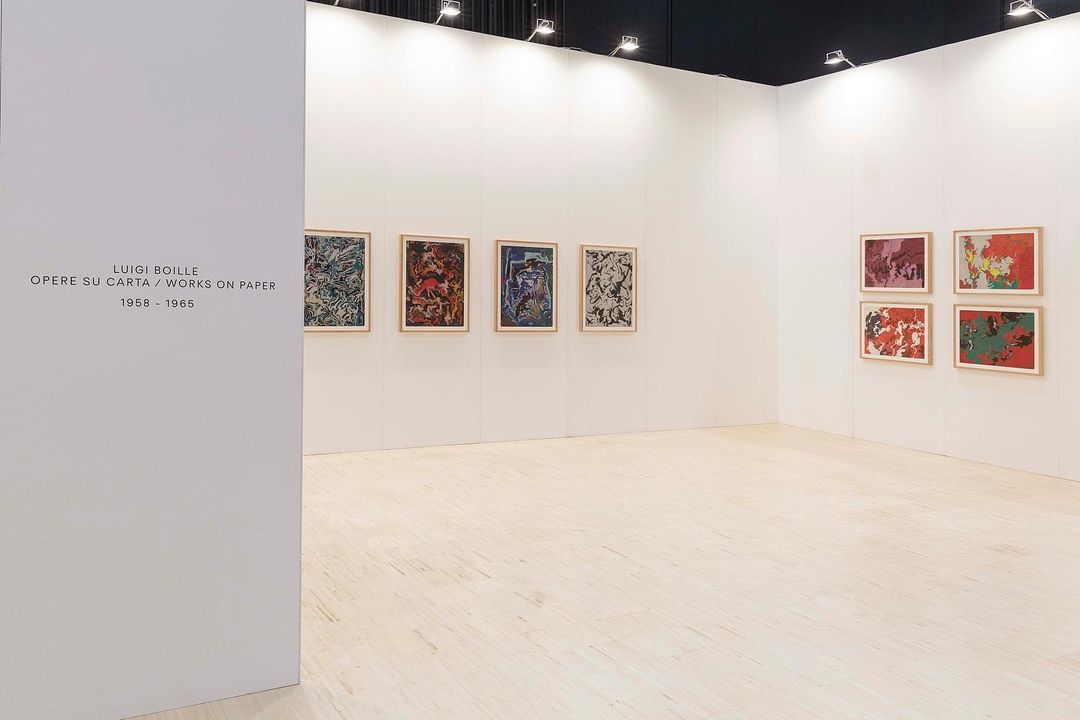
Warning: the translation into English of the original Italian article was created using automatic tools. We undertake to review all articles, but we do not guarantee the total absence of inaccuracies in the translation due to the program. You can find the original by clicking on the ITA button. If you find any mistake,please contact us.




























